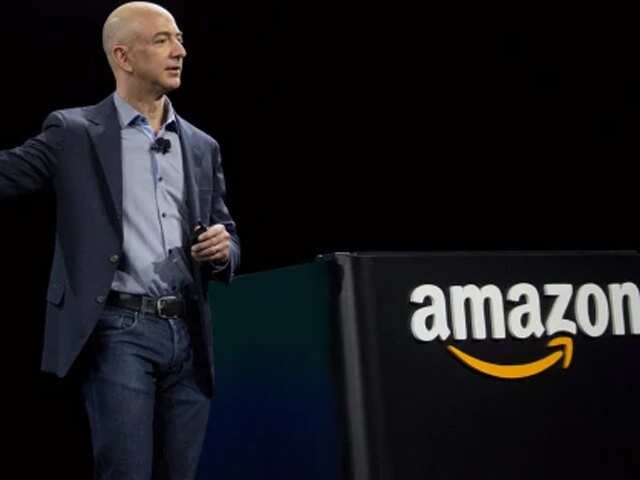 The last two weeks have been remarkably eventful for Jeff Bezos. First, the Amazon.com Inc. co-founder’s visit to India was met with street-side protests, a new antitrust investigation into “predatory pricing and unfair trade practices” and hostile comments from the government led by India Prime Minster Narendra Modi.
The last two weeks have been remarkably eventful for Jeff Bezos. First, the Amazon.com Inc. co-founder’s visit to India was met with street-side protests, a new antitrust investigation into “predatory pricing and unfair trade practices” and hostile comments from the government led by India Prime Minster Narendra Modi.Then last week, Bezos’s yearlong tangle with Saudi Arabia burst into the headlines, with cybersecurity investigators concluding with “medium to high confidence” that Bezos’s iPhone was hacked via a WhatsApp message sent directly from Crown Prince Mohammed bin Salman’s account.
Those are two very different situations in two separate parts of the world. But they had something in common—an overly optimistic bet (that Amazon placed, along with its Big Tech brethren) on global leaders whose dispositions turned out to be less open and, to varying degrees, more autocratic than Silicon Valley originally thought.
Amazon first bet big on India in 2014, when Bezos stood on the top of a flatbed truck in ceremonial Indian wedding garb and presented the chief of his local operation with an oversized $2 billion check. Bezos met with Modi on that trip and amid mutual goodwill, seemed to believe the prime minister would loosen India’s rigorous restrictions on how foreign-owned e-commerce companies could operate.
Since then, regulations in India have actually become stricter, with Modi catering to his party’s base of small business owners by limiting Amazon’s ability to sell items directly and to control its own prices. While gaining market share from Walmart Inc.-owned rival Flipkart, Amazon’s marketplace division reported steep losses in the last full fiscal year. On Bezos’s latest trip, Modi reportedly declined to meet with him.
Bezos’s relationship with Saudi Arabia started with similar hopes. According to last week’s reports, Bezos and Prince Mohammed met at a 2018 dinner party in Los Angeles and exchanged phone numbers. Buoyed by the crown prince’s promise of modernizing the desert kingdom and diversifying its oil-based economy, Amazon was angling to close a $2.2 billion deal to put three data centers in the country. But that arrangement was put on ice after Saudi agents killed Jamal Khashoggi, a columnist at the Bezos-owned Washington Post. Saudi officials have said the crown prince had no involvement in the murder of Khashoggi or the cyberattack on Bezos. Now a Twitter account linked to the Saudi government is advocating for an Amazon boycott.
In each country, Amazon’s agenda was complicated by the regime’s bellicosity toward coverage in the Post. But the sharp decline of its fortunes in India and Saudi Arabia is also about leaders whose true colors were much darker than they originally seemed. India under Modi recently passed a restrictive citizenship law that prevents many undocumented Muslim migrants from becoming citizens, while allowing for applicants with different religious affiliations. The Saudi government under Prince Mohammed has fueled conflict in Yemen, persecuted religious and political dissidents and unleashed coordinated Twitter attacks and other cyber tactics on its perceived enemies.
Amazon wasn’t alone in pinning unrealistic hopes on these leaders. India has proved similarly challenging for Facebook Inc. The country accounts for Facebook’s largest user base, but the government has tried to force the company to identify users of the encrypted WhatsApp messaging service and threatened to introduce restrictive new rules to regulate social media. And in 2018 the Saudi crown prince cultivated many tech leaders who would likely be wary of such photo ops today.
It wasn’t too long ago that tech leaders were overly optimistic about China, too. Mark Zuckerberg did a fun run for the cameras in Beijing and a meet-and-greet with President Xi Jinping. Google thought it could sneak back into China, after famously withdrawing from the country in 2010, with its secretive Dragonfly search project.
Back in what now seems a simpler time, tech companies thought the world was becoming more receptive to the economic bounties and democratizing halo of the internet. But the world, and these leaders, have veered starkly away from this brand of idealism. It turned out they didn't want to be friends with Silicon Valley after all.
No comments:
Post a Comment